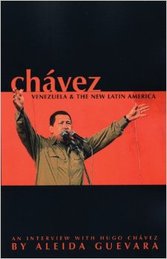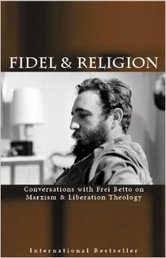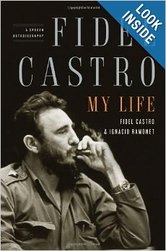About the Author
Charles McKelvey
Professor Emeritus
Presbyterian College
Clinton, South Carolina
E-mail: [email protected]
Charles McKelvey
Professor Emeritus
Presbyterian College
Clinton, South Carolina
E-mail: [email protected]
I was a student and professor at seven state and church-affiliated colleges and universities in the United States for 46 years, from 1965 to 2011. As a student and teacher, I primarily was oriented to understanding the sources of major social problems, such as various forms of inequality in the nation and the world. For this endeavor, I found the disciplinary boundaries to be dysfunctional, and thus I read works in history, economics, political science, sociology, philosophy, and religion. Early on, I discovered that the social movements formed “from below” have many important insights, and thus my quest has included personal encounter with social movements, first the black power movement and Black Nationalist thought in the United States, then the popular movement in Honduras, and finally the Cuban Revolution.
From 1993 to 2011, I traveled to Cuba extensively, staying on average three months of each year on the island. Since my retirement from college teaching in 2011, I have been practically living in Cuba, although I maintain a residence in the United States. I have found that the Cuban socialist project has vitality, which has enabled it to endure through the economic crisis of the early 1990s, and has enabled it to persist in the construction of socialism. Secondly, I have found that Cuban socialism departs from the projections of classical Marxism, inasmuch as Cuban socialism is a synthesis of Marxism-Leninism and the Cuban struggle of national liberation in the tradition of José Martí. Accordingly, Cuban socialism is providing the practical basis for the evolution of Marxist-Leninist theory in the Third World context of national liberation. It therefore represents an advanced manifestation of an anti-colonial and anti-imperialist perspective, formulated in theory and practice. Moreover, I have observed that Cuba has popular democracy, including assemblies of popular power and mass organizations, which is an alternative to representative democracy. Largely unknown in the world, the Cuban political process is characterized by higher levels of voter participation and legitimacy. Finally, I have seen that Cuban public discourse is dignified, and it is characterized by historically and scientifically informed discussion with respect to Cuba and the world, very much in contrast to the public discourses of the nations of the North. Political leaders, leaders of mass organizations, academics, and artists actively participate in Cuban public discourse.
My book, The Evolution and Significance of the Cuban Revolution: The light in the darkness, is the culmination of a life-long quest to understand the perspective of the colonized. The subtitle was inspired by Cuban poet, essayist, and novelist Cintio Vitier, who called the Cuban Revolution, “the sun of the moral world.”
At the age of 74, I live in an apartment in Havana with my Cuban wife, and I continue to strive to deepen my understanding of the Cuban Revolution and global dynamics, and I continue to write my reflections.
From 1993 to 2011, I traveled to Cuba extensively, staying on average three months of each year on the island. Since my retirement from college teaching in 2011, I have been practically living in Cuba, although I maintain a residence in the United States. I have found that the Cuban socialist project has vitality, which has enabled it to endure through the economic crisis of the early 1990s, and has enabled it to persist in the construction of socialism. Secondly, I have found that Cuban socialism departs from the projections of classical Marxism, inasmuch as Cuban socialism is a synthesis of Marxism-Leninism and the Cuban struggle of national liberation in the tradition of José Martí. Accordingly, Cuban socialism is providing the practical basis for the evolution of Marxist-Leninist theory in the Third World context of national liberation. It therefore represents an advanced manifestation of an anti-colonial and anti-imperialist perspective, formulated in theory and practice. Moreover, I have observed that Cuba has popular democracy, including assemblies of popular power and mass organizations, which is an alternative to representative democracy. Largely unknown in the world, the Cuban political process is characterized by higher levels of voter participation and legitimacy. Finally, I have seen that Cuban public discourse is dignified, and it is characterized by historically and scientifically informed discussion with respect to Cuba and the world, very much in contrast to the public discourses of the nations of the North. Political leaders, leaders of mass organizations, academics, and artists actively participate in Cuban public discourse.
My book, The Evolution and Significance of the Cuban Revolution: The light in the darkness, is the culmination of a life-long quest to understand the perspective of the colonized. The subtitle was inspired by Cuban poet, essayist, and novelist Cintio Vitier, who called the Cuban Revolution, “the sun of the moral world.”
At the age of 74, I live in an apartment in Havana with my Cuban wife, and I continue to strive to deepen my understanding of the Cuban Revolution and global dynamics, and I continue to write my reflections.





